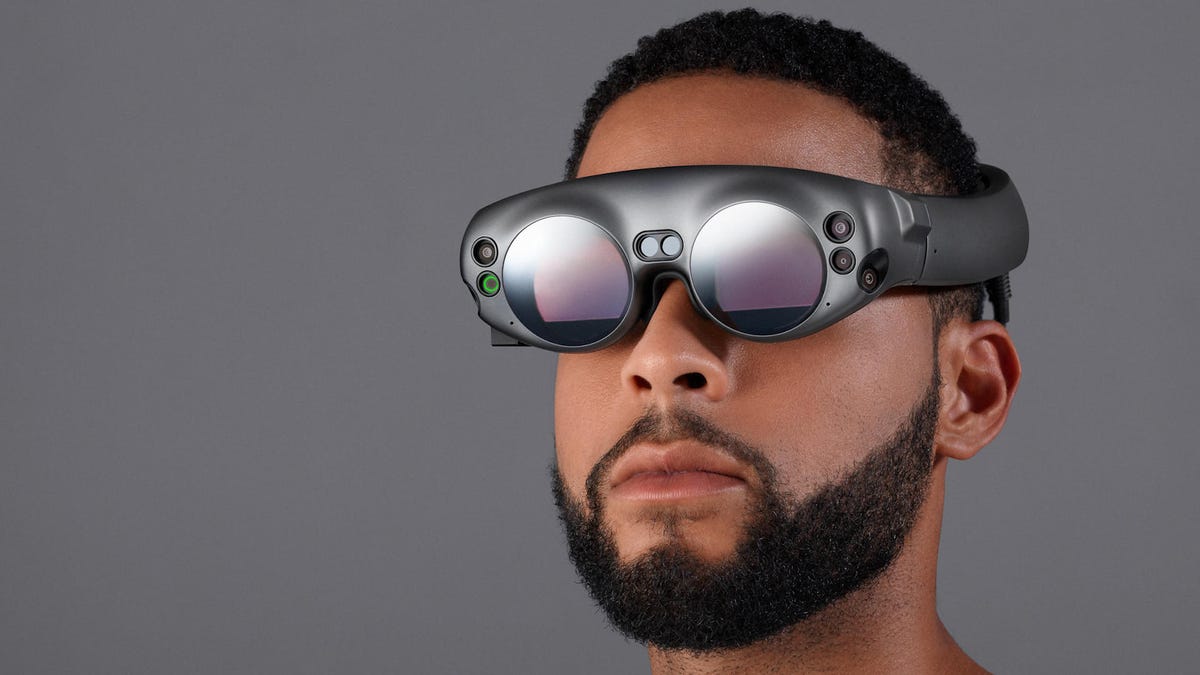You've heard of AR glasses, but this startup wants to make them into contact lenses
One of the biggest challenges for AR headsets like Microsoft's HoloLens is their bulk. A startup called Mojo Vision wants to make them virtually disappear.
What if instead of a bulky headset or cumbersome glasses to give you the futuristic augmented reality overlay of computer information on the real world, you could just wear contact lenses?
That's what Silicon Valley startup Mojo Vision is aiming to let you do, people familiar with the matter say. The company, which just announced that it's raised $50 million, describes its technology as "invisible computing," a world that serves up "information when you need it" and lets you connect with others "at a glance, anytime, anywhere, and all while looking like you."
"We see a world that's eyes up and hands-free," the company says on its website.
Mojo Vision isn't disclosing product information, it said in a statement, "but we look forward to sharing more as we continue our work on the technology and platform."
The company's technology is different from current devices on the market, like Microsoft's HoloLens or the Magic Leap One, bulky headsets that wrap around your head and put large lenses in front of your eyes.
Eventually, technology enthusiasts say, these headsets will be shrunken down, but that's going to take time. Magic Leap , founded in 2011, released its first developer headset, the Magic Leap One, in August and said it's still working on a consumer version that probably won't see the light of day for another year or two.
"Over the next 10 years, the form factor will get smaller and smaller," Facebook CEO Mark Zuckerberg said at a conference two years ago, and eventually we'll have something that looks like a pair of glasses.
That, tech enthusiasts say, is when these augmented reality devices can become a part of our everyday life.
Though Mojo Vision's attempt to miniaturize this technology is ambitious and will likely take years to develop, the company's description of the future isn't far from what others are marketing.
Microsoft and Magic Leap, whose headsets respectively cost as much as $5,000 and $2,295 apiece, have both shown how easily computer information can be laid over the real world. This technology, called augmented reality (AR) or mixed reality (MR), lets you play a virtual board game on your coffee table, for example. Or read email out of the corner of your eye while watching your kids play.
We're moving in a direction where information from a computer will no longer be on "a screen you look at like a phone and PC," said Ben Bajarin, an analyst at Creative Strategies.
The promise of the tech has drawn billions of dollars in investment, with Magic Leap alone raising more than $2.3 billion since its founding.
Meanwhile, the amount of money flowing to companies working on software and hardware for these types of headsets is expected to jump by nearly 50 percent this year to $427.1 million, according to SuperData. Next year, it'll jump again, to $644.6 million.
The tech industry is increasingly looking toward AR, despite high profile bets by Zuckerberg, Google , HTC , Samsung and others on virtual reality . VR headsets bring a screen so close to your face that your brain is tricked into believing you've been transported to a virtual world, whether you're scuba diving with blue whales, fighting off zombies or witnessing a spaceship dogfight.
Investment in VR has slowed in recent years, SuperData says, amid slow sales growth and struggles by app developers to create the must-have game. AR, by comparison, has already begun attracting businesses that see opportunity in using the technology to bolster customer service or to help repair technicians by letting them work remotely with experts.
Mojo Vision's ambitious project is made all that much more interesting by who's working for the company. Mojo boasts veterans from the tech industry's biggest hitters, including Google, Amazon, HP and Apple, which is hard at work on its own headset, a product, CNET reported, that's scheduled to arrive sometime in 2020.
CNET's Holiday Gift Guide: The place to find the best tech gifts for 2018.
Best Black Friday 2018 deals: The best discounts we've found so far.


